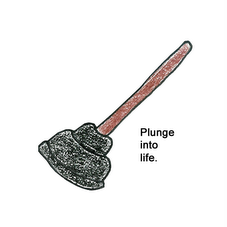While I'm going to stay away from being labelled the Grinch or Scrooge for being "anti-gift-giving," I feel the need to come out and say that we as a civilization need to be responsible for our dwindling resources. In other words, let's ditch the polystyrene packaging, foam peanuts (the old-school, non biodegradable kind), the hard plastic wraps, and all the other nonsense that keeps these gifts all warm and cozy for a little while, and then are casually tossed out in the trash. We do indeed have alternatives to these mischievous forms of packaging, such as shredded paper, cardboard, bioplastics (great article by the way), and more. And with the rising costs of petroleum, as mentioned in the bioplastics article, there is now more reason than ever for companies and governments to fund research in better biodegradable material for packaging.
By converting from non-biodegradable packaging products to biodegradable and/or recyclable products, companies also have a lot to gain from a marketing standpoint. For example:
- Consider how popular it is for car dealers to announce how fuel-efficient their new lines of cars are (even though many cars still are gas guzzlers). I believe a company in certain industries could make its mark by using a new form of packaging that is better for the environment. Televisions, for example, come in huge boxes packed with polystyrene. They could easily make it known that they have undertaken a new way to get products into consumers' hands without resorting to short-sighted packaging usage.
- Perhaps a market would open up for the disposing and reusing of certain materials. Right now, most packaging is hauled off to landfills, as mentioned, but maybe there would be a way to collect used packaging from industrial sites or households and either resell it or reuse it. Perhaps companies like this even exist as we speak. But nobody that I know of is marketing this niche service area.
- By not using plastic-based products, companies would also be able to mention that they are helping control the price of gas and oil imports, since petroleum usage in packaging certainly affects the supply and demand of this disappearing resource.
- Lastly, think about how much of a mess a lot of these packaging products make in people's houses or businesses. Just today I had to move my couch away from a wall and I happened to find dozens of little pieces of polystyrene packaging that escaped when trying to clean up from opening boxes. Who needs that mess? If there's a way to cut down on this mess, I wouldn't mind companies bragging about it. But maybe that's just me.



